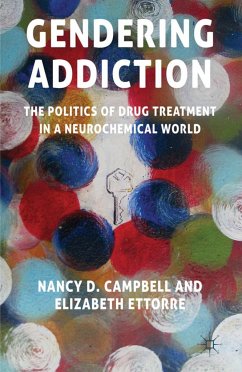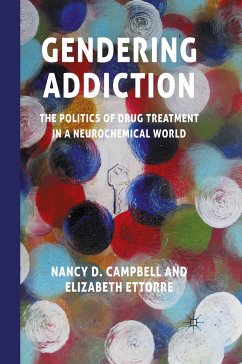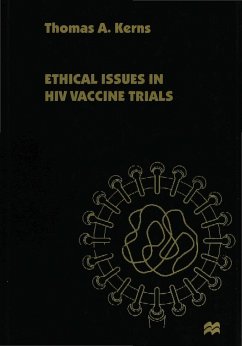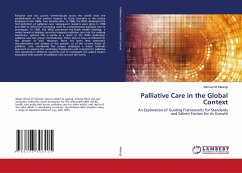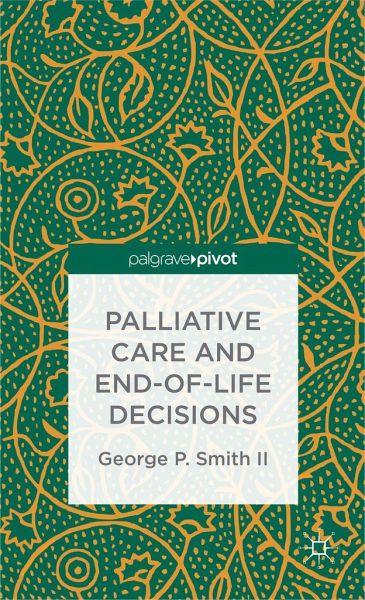
G. Smith
Gebundenes Buch
Palliative Care and End-Of-Life Decisions
Versandkostenfrei!
Versandfertig in 6-10 Tagen
Weitere Ausgaben:

PAYBACK Punkte
19 °P sammeln!





Total pain management mandates that an ethic of adjusted care be implemented at the end-stage of life which acknowledges ethically, legally, and clinically the use of terminal sedation as efficacious treatment.
George P. Smith, II has been a scholar, teacher, and international lecturer in the fields of Bioethics and Health Law for over forty years, and has held research affiliations at nearly one hundred institutions, including The Hoover Institution at Stanford University and the Max Planck Institute, Heidelberg, Germany. His bibliography is comprised of nearly two hundred entries with fifteen previous books, amongst them Law and Bioethics: Intersections Along the Mortal Coil (2012) and The Christian Religion and Biotechnology: A Search for Principled Decision-making (2005). US Judge Richard A. Posner has acknowledged Prof. Smith as 'one of the world's leading experts on the legal and ethical issues raised by modern medicine.'
Produktdetails
- Verlag: Palgrave Macmillan US / Palgrave Pivot / Springer Palgrave Macmillan
- Artikelnr. des Verlages: 978-1-137-37915-3
- 2013
- Seitenzahl: 121
- Erscheinungstermin: 22. Oktober 2013
- Englisch
- Abmessung: 218mm x 142mm x 15mm
- Gewicht: 263g
- ISBN-13: 9781137379153
- ISBN-10: 1137379154
- Artikelnr.: 39757550
Herstellerkennzeichnung
Libri GmbH
Europaallee 1
36244 Bad Hersfeld
gpsr@libri.de
"For decades Professor Smith has been at the vanguard of research into the law as it concerns end-of-life decision-making. In this book he once again he jumps into the breach, reformulating the debate and setting out a way forward that will have a lasting impact on the field for years to come." - Cameron Stewart, Pro-Dean and Professor of Health, Law and Ethics, The University of Sydney, Australia
"A detailed analysis of end-of-life treatment, this book offers an important contribution to an area of academic, political, ethical and religious concern. Palliative Care and End-of-Life Decisions covers a broad range of issues, including the nature of pain and of pain management, the concept of medical futility, the doctrine of double effect, the regulation of physician-assisted death, and an analysis of the nature of a 'good death'. Although dealing with a controversial issue, Smith does so with analytical depth and sophistication, while making an impassioned case for reform." - Jonathan Herring, Fellow in Law, Exeter College; Professor of Law, Director of Undergraduate Studies, University of Oxford, UK
"A detailed analysis of end-of-life treatment, this book offers an important contribution to an area of academic, political, ethical and religious concern. Palliative Care and End-of-Life Decisions covers a broad range of issues, including the nature of pain and of pain management, the concept of medical futility, the doctrine of double effect, the regulation of physician-assisted death, and an analysis of the nature of a 'good death'. Although dealing with a controversial issue, Smith does so with analytical depth and sophistication, while making an impassioned case for reform." - Jonathan Herring, Fellow in Law, Exeter College; Professor of Law, Director of Undergraduate Studies, University of Oxford, UK
Für dieses Produkt wurde noch keine Bewertung abgegeben. Wir würden uns sehr freuen, wenn du die erste Bewertung schreibst!
Eine Bewertung schreiben
Eine Bewertung schreiben
Andere Kunden interessierten sich für




